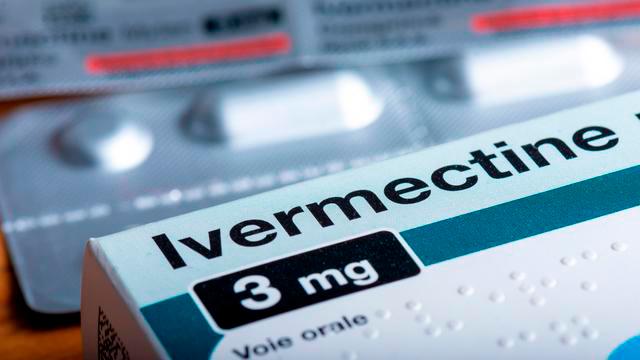KUALA LUMPUR: Many Malaysians are still falling for claims that certain drugs such as ivermectin are effective for the treatment of Covid-19.
These drugs are openly being promoted on social media platforms, with the most popular among them being ivermectin, an antiviral drug approved by the US Food and Drug Agency as an anti-parasitic medication.
Proponents of ivermectin, who have dubbed it the “death prevention pill”, claim the drug can prevent death due to Covid-19 as well as stop the disease from progressing to a more serious stage.
These false claims have created a high demand for ivermectin which saw a sharp hike in its price from RM5 to RM60 a strip (10 tablets), according to the Ministry of Health’s (MOH) Pharmacy Enforcement Division.
In the meantime, a clinical study carried out by the Institute of Clinical Research showed that ivermectin did not prevent severe cases of Covid-19. In a statement issued on Nov 3, MOH said the drug, as such, cannot be recommended for inclusion in current Covid-19 treatment guidelines.
The study involved 500 Covid-19 patients in category 2 or 3 in 20 government hospitals and at the MAEPS 2.0 Covid-19 quarantine and treatment centre.
Global phenomenon
Commenting on the popularity of ivermectin, Universiti Kebangsaan Malaysia (UKM) medical lecturer Dr Fitri Fareez Ramli said the belief in the effectiveness of ivermectin in treating Covid-19 is a global phenomenon.
“This matter is still ongoing because part of the community is worried and wants to find alternatives to prevent or treat Covid-19,” said Dr Fitri Fareez, who is attached to the Department of Pharmacology, Faculty of Medicine.
The ivermectin issue is an example of how some people can be deceived by claims that are not backed by scientific evidence, he said, warning that it is dangerous to take a drug whose effectiveness has yet to be proven as it can lead to unwanted health complications.
When announcing the outcome of the recent clinical study involving ivermectin, MOH revealed that the incidence of side effects or adverse events was three times higher among those who took ivermectin, with the most common one being diarrhoea.
Check spread of false claims
Dr Fitri Fareez also urged healthcare professionals to keep abreast of advancements in the medical field by referring to authentic medical journals and experts before simplifying the information and explaining it in a language the public can understand.
These efforts are important to educate the people and prevent them from falling for unproven treatment methods, he said, adding that healthcare professionals can also make use of public forums to enable the public or social media users to direct questions at them with regard to the use of a certain drug or treatment.
Dr Nurul ‘Izzah Ibrahim, who is also a lecturer at UKM’s Department of Pharmacology, called for a complete stop to the dissemination of false information by irresponsible parties.
“The public must have the awareness not to believe whatever they read on social media. They must be taught to check the facts first and if found untrue, they should lodge a report with the Malaysian Communications and Multimedia Commission (to stop the spreading of false information),” she said.
Under Section 211 and Section 233 of the Communications and Multimedia Act 1998, those convicted of disseminating false information through social media can be fined up to RM50,000 or imprisoned up to a year, or both.
Dr Nurul ‘Izzah also commented on the existence of private clinics that supply ivermectin to their patients.
“Their actions certainly run foul of medical practices. It is irresponsible of them to sell ivermectin off the record, whereby the drug is not entered into a patient’s official prescription, all for the sake of earning a profit.
“The authorities must conduct detailed investigations on such practices. Stern action must be taken against those found guilty of such action to teach a lesson to others,” she said.
Reduce hospitalisation
Dr Nurul ‘Izzah, meanwhile, praised MOH’s move to sign a letter of understanding with Merck Sharp & Dohme for the purchase of the antiviral pill molnupiravir which, according to clinical data, can reduce the risk of Covid-19 patients progressing to the more severe stages of the disease.
She said molnupiravir works by disrupting the replication of the Covid-19 virus’ genome, ribonucleic acid (RNA). The use of the antiviral drug can stop the virus from spreading inside the body and treat patients at risk of experiencing severe infection.
She sees MOH’s purchase of the drug as a proactive step to alleviate public anxiety, as well as stop them from being deceived into taking drugs that have not been scientifically proven to treat Covid-19.
“Clinical trials of molnupiravir showed encouraging results. Early analysis of phase three trials showed that it reduced hospitalisation and death by 50 percent (in the group that was given molnupiravir) compared to the group that was given a placebo,” she added.
-Bernama










